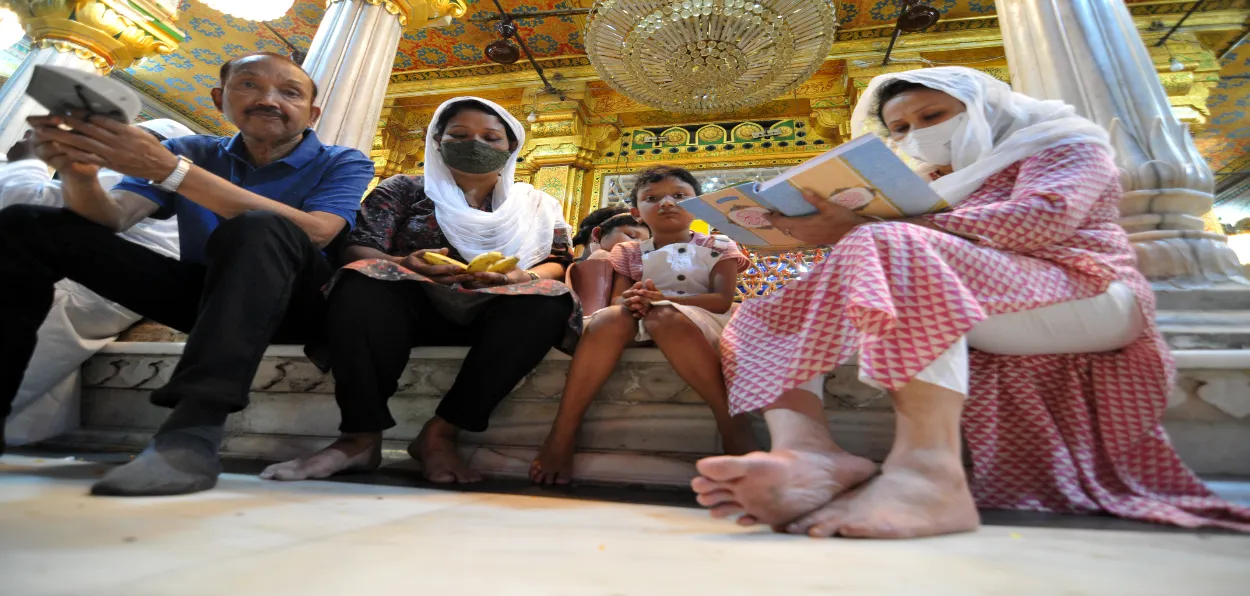
Eman Sakina
In Islam, the family holds a central and highly valued role. It is considered the fundamental unit of society and serves as the cornerstone for a stable and harmonious community. The family, as defined in Islam, includes parents, children, and extended family members.
Friday Musings
In the Holy Quran, all human beings are mentioned as members of a single large family unit. Members of this large family have some obligations and rights towards each other as well as to the unit itself. The smallest family unit starts with husband and wife, and with the birth of a child, they become father and mother.
In due course, this small unit expands into many other relations and keeps enlarging and energizing through their cooperation and support. With the expansion of the family, the husband and wife assume different roles.
According to Islamic law, men are overall guardians of the family affairs, and women are guardians of the house management and training of the children. The wives are supposed to give every possible protection and support to the men. However, their biggest and most important role is their parenthood as they have to prepare future generations. Peace and happiness reign supreme in the family unit as long as parents remain their guide and pivotal center.
Foundation of Society: The family is seen as the building block of a righteous and just society. The well-being of society is believed to be closely tied to the well-being of individual families.
Responsibilities of Parents: Parents are considered crucial in Islam, and their roles are clearly defined. They are responsible for the upbringing, education, and moral guidance of their children. Providing a loving and nurturing environment is emphasized.
Respect for Elders: Islam places great importance on respecting and caring for elders within the family. The concept of birr al-walidayn (kindness to parents) is strongly emphasized in Islamic teachings.
Marriage as Half of Faith: The Prophet Muhammad is reported to have said, "When a person marries, he has fulfilled half of his religion." Marriage is considered a sacred contract, and spouses are expected to support and complement each other.
Mutual Support: Family members are encouraged to support each other emotionally, financially, and spiritually. This mutual support contributes to the overall strength and cohesion of the family unit.
Children as a Blessing: Children are viewed as a blessing from Allah, and the responsibility of raising them by Islamic values is emphasized. Education in both religious and worldly matters is crucial.
Extended Family Bonds: Islam promotes maintaining ties with extended family members, fostering a sense of community and shared responsibility. Kindness and respect toward relatives are encouraged.
Social Welfare: The family is seen as the primary source of social welfare. It is expected to take care of its members, especially in times of need, before seeking external assistance.
The Quran emphasizes the value of family through verses such as Surah An-Nahl (16:90) and Surah Ar-Rum (30:21), which highlight the importance of maintaining virtuous behavior and nurturing familial connections, as well as the significance of family relationships in Islam.
ALSO READ: Badalta Kashmir: Rap sensations Humaira and MC Raa sang what they saw around
The family is crucial for building a united and stable society. In Islam, the concept of family goes beyond just parents and children to include extended family members. This wider definition of family encourages a sense of community and cooperation, which ultimately leads to a more peaceful society. When we take care of our family, we strengthen the bonds that unite us and promote stability and togetherness
